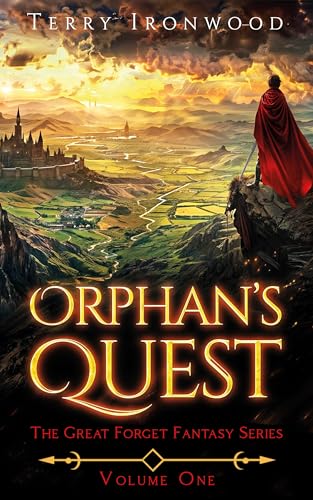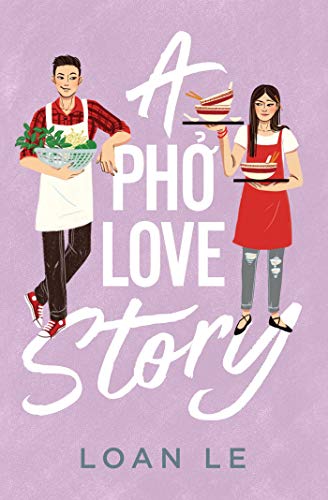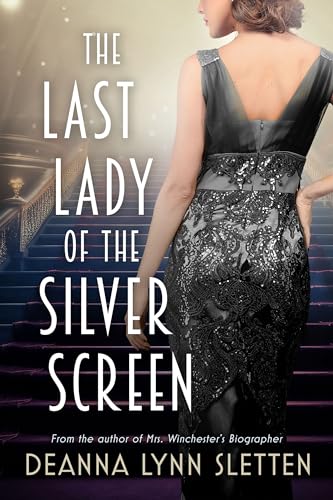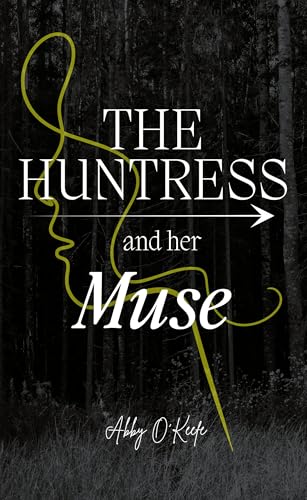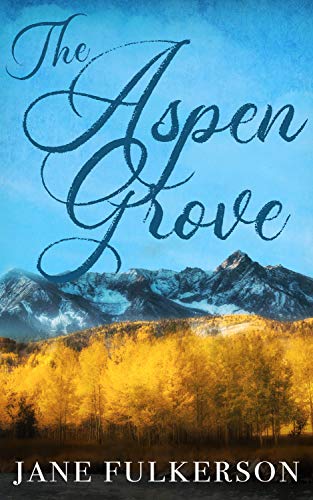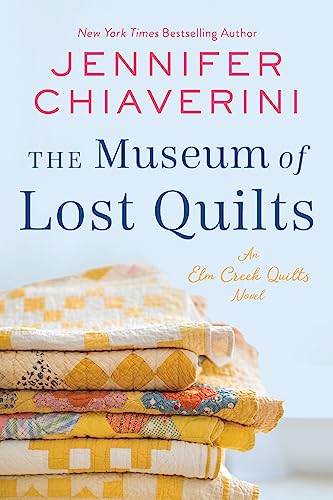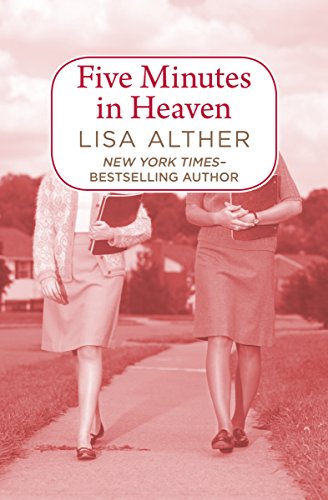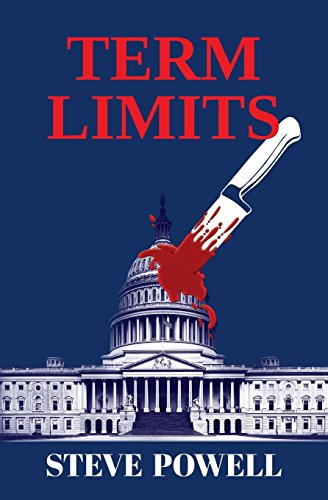Last week we announced that Ralph Shamas’ Legal Mystery The Homicide Chronicle: Defending the Citizen Accused is our Thriller of the Week and the sponsor of thousands of great bargains in the thriller, mystery, and suspense categories: over 200 free titles, over 600 quality 99-centers, and thousands more that you can read for free through the Kindle Lending Library if you have Amazon Prime!
Now we’re back to offer our weekly free Thriller excerpt:
The Homicide Chronicle: Defending the Citizen Accused
by Ralph Shamas
“…a welcome change in the genre of legal fiction.” ~ Kirkus Reviews
A chilling murder. A sensational courtroom drama.
The naked body of a young single mother is found in the bedroom of her own home. She’s been sexually assaulted and stabbed 36 times. There is blood splatter, candle wax, a mysterious drinking glass, and other compelling evidence found at the scene. Bill Castro, a working man, a thoughtful and loving husband, the father of a young child, is charged with the horrifying crime. Lawyer Bruce Sanah is retained to represent Bill Castro and finds himself having to confront disturbing evidence and unsettling surprise. Is Bill Castro innocent or is he a brutal murderer? The Homicide Chronicle, written by a man who has years of experience in the courtroom, delivers a true insider’s look into a fascinating murder investigation and jury trial. Ultimately, the absorbing conclusion will confirm that the pursuit of truth and justice is often complicated and unpredictable.
And here, for your reading pleasure, is our free excerpt:
PROLOGUE
I am a lawyer. For more than 35 years, my job has been to defend people accused of committing all manner of wrongful acts. I love what I do, and I never look back on my decision to become a lawyer. In fact, that decision was made when I was a middle-school student, just 13 years old, as I listened to a local lawyer who had come to speak to our civics class. He was passionate in expressing the irreplaceable value of good lawyers in our free society and was forceful in demonstrating with his charismatic presence that a lawyer can command a huge image in the eyes of others. Duly impressed, and convinced that I wanted to be just such a man, I went home that day to announce my intentions. I did so at the dinner table that evening. My parents, both occupied with their daily stresses, nodded slightly, implying only some tacit approval. Still, I was absolutely determined, and in actual fact, I never changed my mind.
Even before I entered law school I discovered that all lawyers sadly must acknowledge that not everyone sees the profession as honorable. Then, beginning in the early years of my law practice, I started hearing the question, usually asked by some new acquaintance at a social function: “How can you represent a guilty man?” I still get that question on occasion and suppose I will always will. People are programmed, it seems, to bring that question to mind when the topic of lawyers is brought up. Admit it, you are probably asking that same question right now. Well enough. My response, for now, is simply this: You surely will have at least some understanding of what I believe to be the most compelling and appropriate answer once you have finished reading this book.
Over the course of my legal career, I have represented hundreds of clients, had hundreds of trials, and became familiar with scores of other cases. One murder case stands out as the most intriguing and enigmatic of them all. This book focuses on and fictionalizes that single case: the case of a sexual murder, the despicable acts of a twisted mind. With this said, you may be ready to assume that I was the defense lawyer. I will not confirm that for you. In fact, the main fictional character in this book is named R. Bruce Sanah, and with him as your companion, you will pass through and experience the course of a trial like no other you have ever heard or read about. Who committed the awful, heinous crime? Well, all I will tell you now is that it is just not that easy to say. Did Lawyer Sanah represent a guilty man? You be the judge, if you can.
The events have been set, for purposes of this story, in Douglas, Arizona, a border town separated by a tall barbed-wire fence from Agua Prieta, Mexico. The Douglas population has been approximately 15,000 to 20,000, give or take a few thousand, for decades. It is the county seat of Cochise County and a much-overlooked port of entry with Mexico. You will read that Bruce Sanah was born there and grew up attending the Douglas public schools. He loved the people in Douglas; it was his home. And just as I personally persisted in my desire to become a practicing lawyer, Bruce Sanah never wavered from his intent to study law and to return to Douglas following his law school graduation.
This extraordinary murder trial took place in 1983, at a time when Bruce Sanah was a relatively young lawyer. It was an age that preceded modern-day computers and smartphones. Consequently, you should refrain from asking yourself why he did not, at critical moments, go online for an answer or for relevant background information. Lawyers did what they could with what was available at the time. There were no laptops in the courtroom, only copious handwritten notes made with pens on legal pads.
The case this book focuses upon and fictionalizes was in many ways on my mind (or at least at the back of my mind) for a good many years. Justifiably, you may wonder why I waited so long to write the story. Well, there is no truly good answer I can give you, except to say that after you have finished this book, you may better understand my feeling that some things are just so compelling that words do not come easily to describe them. However, aside from the fact that it was decades before I sat down to write the tale you are going to read, it simply had to be told and it had to be told by someone like me—a lawyer who has been there, in court with a client accused of murder.
One final thing: Please keep in mind that names and places have been changed, and many of the facts have been fictionalized. If a name or situation I have used is the same or resembles another name or situation, or is the same or resembles someone else’s name or circumstance, that is simply coincidence. That being said, I assure you that there was a “Castro” murder trial, and you are about to become a part of an unforgettable few months through the eyes of my fictional character, Bruce Sanah.
So, let us begin.
CHAPTER 1
My name is Bruce Sanah and it is early morning, July 13, 1983. My breakfast was interrupted by a news broadcast concerning a young woman who had been stabbed multiple times and sexually assaulted in her own home. Even for a criminal defense lawyer, accustomed to seeing the dark side of human behavior, I was chilled by what I heard. There were 36 knife wounds counted by the coroner when he investigated at the scene. The body, of course, was covered with blood, smeared over her abdomen. There were other findings of a “foreign substance” on the woman’s body. Strange indeed, and I hoped that I could learn more from a later broadcast or from my sources downtown.
The drive through Douglas that morning was routine, at least until I passed by the old Nickson Hotel. As I sped along Main Street trying to get to my office early enough to study a few hours and prepare for a 9:00 am hearing in court, I looked up to the second floor of that ornate old building, to the window of the small two-room office space I first occupied as a practicing lawyer. I remembered toiling and scraping out a living on that floor, which I fortuitously shared with an aging chiropractor known in the community as Dr. Bones, a gay cosmetologist named Johnnie, and a part-time insurance agent who spent most of her days driving a delivery truck for the local water plant. The hotel lobby was downstairs, and the hotel rooms were on the third through sixth floors. The rent was the lowest in town. At the time, I could barely afford even those accommodations.
Nostalgia set in as a result of my reflection on my old Nickson quarters and I was its prisoner as I continued to my office. It was true agony for me to drive by and recall the lonely hours I had spent in those tiny confines at the Nickson, contemplating whether I was ever going to get the chance I needed to prove myself as a lawyer. I often thought that it was somehow by the generous graces of the many great attorneys I had studied about in law school that I was rescued from there, after only a few years, by a Douglas lawyer named Bob Norwood. Bob was a family friend who took me under his wing. He was my mentor and my hero. He helped me with my fledgling practice and taught me so much about how to be a lawyer. I truly respected his genuine kindness and his desire to come to the aid of people in need. Unfortunately, only two years after taking me in, he died unexpectedly in his office, after apparently preparing all night for an upcoming trial. His secretary walked in at 7:00 am to find him with his head lying in the pages of the law book he had been reading. The legal profession lost a true stalwart that day, and I was alone again to fend for myself. I still miss him.
As I continued my drive that July morning and turned left past the Nickson onto Second Street, I traveled by the building where Bob and I were together for those few years. Beyond, only three blocks further on Second Street, was the old house I had purchased shortly after Bob’s death, with the help of a mortgage from a local bank and my father’s willingness to co-sign. I parked my Mercury in the lot next door and walked to the front of the house. The shingle was hanging, as intended, just as close to the street as the zoning ordinances would allow. I read it again with pride—R. Bruce Sanah, Attorney at Law. I had my office. I had some good experience now. All I needed, I thought to myself, was that one break. That one big case.
As I entered through the front door, I saw my trusted secretary, Lisa Banning, typing feverishly on the briefs I was going to present at the 9:00 am hearing. Lisa scarcely glanced in my direction; her red hair tied up in a bun to keep it out of her eyes, her fingers moving at lightning speed. She was busy and did not want to be disturbed. I walked past her station, lovingly tapped her desk as I often did in circumstances such as this, smiled, said nothing, and kept walking into my own office space. Lisa was a jewel.
After finding a comfortable spot on my somewhat worn couch, positioned in a far corner of my office, and before beginning my studies for the hearing, I realized that I could not get Lisa off my mind. I remembered that Martha, Bob Norwood’s long-time secretary, had continued with me for a year and then retired. It just was not the same for her without Bob as her boss and friend. I understood and wished her well when she decided to go her own way. Lisa then came into my life on a Friday morning soon thereafter. I was in the kitchen area of my office on Second Street, thinking that I was going to have to advertise for Martha’s replacement, when Lisa opened the front door, walked in and started looking around. She peered into the kitchen and said, “Hey, are you looking for a secretary? If you are looking, I’m the one you need to hire.” I turned to face this pretty young redhead in her mid-twenties. Her hair was long and tied into a ponytail that day. I couldn’t help but notice her shapely figure and the pleasant but determined expression on her face. We started talking and she helped me prepare the morning coffee.
As we progressed in conversation and sat together sipping our coffee, I realized that she truly needed a job. She was a single mother of an infant boy and determined to provide for him. Her boyfriend had deserted her well over a month before, leaving her alone with the child, and she had been searching every day for work. It was clear from the resolve reflected in her voice that she was not about to give up trying. Then that morning, her aunt, a friend of the divorce lawyer who had his office in the converted house next door, mentioned to Lisa that my secretary had quit. She came right away to speak with me. She had only minimal secretarial skills, but I did not have the money to pay a full-fledged legal secretary. It seemed a perfect match, and I liked her candor and determination. I hired her that very day.
Lisa rarely dated and I sometimes wondered whether she was too devoted to her job. She was always willing to put in extra hours when it was necessary, and many days she would be at the office by 6:30 or 7:00 am, always eager and cheerful. My clients were comfortable with her and most of them were calling her “Lisa” by the second or third visit to the office. I truly admired her for her ability to put people at ease and create friendship in such short order. I also felt at liberty to share my thoughts with her, and we often spent hours talking about our clients and their cases. I valued her input and her insight. I often assessed how truly fortunate I was to have Lisa as my friend and ally. She and I had a connection that I have never been able to fully explain.
The thoughts of Lisa’s entry into my life gradually subsided. I stood up from the couch and took off my suit coat. It was very hot in Douglas that morning, and it no doubt would become even hotter. The savvy denizens generally preferred to stay indoors during the heat of the day. I was no different, even though my office had only a swamp cooler to ward off the tremendous heat. In fact, it was so hot at times that I had to place a fan on top of my desk to keep from wilting. I must confess, however, that I was working long hours and never actually worried much about the quality of the air conditioning. I sustained myself with my work during my time in the office and ignored almost every other influence while I was there.
Lisa would occasionally encourage me to seek out the high-dollar civil cases. She was more attuned to the need we had for the niceties and comforts other lawyers in town enjoyed. I was stubborn, on the other hand, and remained determined to follow my ambition to be a top criminal defense lawyer and to never take any case that I could not believe in. Consequently, I kept accepting only a select few criminal cases for what the clients and family members could manage to put together to pay me as a retainer. It was usually not a great deal of money, but I was content.
Realizing that she was never going to succeed in changing my mind on the subject, Lisa patiently toiled with me in our modest little office, never really complaining. Nonetheless, she was putting a little of our income aside each month toward the eventual purchase of refrigerated air. The amount she was able to devote to that purpose depended on the extent of the fees collected in any particular month, but Lisa was adept at saving money for our office needs and did so in such a manner that I really never noticed what she was doing.
_____________
The hearing I had that morning was on a motion to dismiss the charges which had been filed against a rather benign client who had recently retained me. He was a local businessman who was alleged to have absconded with funds belonging to a wealthy investor. He was adamant that the funds were legally his to do with as he pleased and that the investor was actually unhappy only because he had lost money in what was an entirely legitimate business venture. I hoped to convince the trial judge that the whole affair was a civil matter, at best, and that the criminal charges were badly misplaced.
The District Attorney, Milton Brand, would be handling the hearing himself, instead of assigning it to an assistant. I knew him well, and it was obvious that he was only minimally interested. He too believed that the dispute should be handled in a civil court, but he was proceeding with the case, even though he had reservations, because the investor was a political power broker in Douglas. It was a disagreeable, yet all too common, situation. Politics—an inevitable evil when the prosecutor is an elected official.
It was hard for me to respect Milton’s inability to confront and act on the truth, to do the right thing by dismissing the charges. At the same time, I realized that he had to run for re-election and that his candidacy could be compromised by offending the alleged victim. All things considered, Milton was probably hoping that the motion to dismiss would be granted and he would then be able to blame the “miscarriage” on the judge, George Anderson Riley. Judge Riley was a good man, a fair judge, and Milton was unfortunately hoping to put the whole mess squarely in his lap.
Lisa marched into my office at precisely 8:30 and handed over the finished briefs. She also told me, somewhat excitedly, that we had just received a call from an Oklahoma woman, Ruby Andrea, who was referred by a prominent Douglas civil lawyer who sometimes recommended us for criminal defense matters. Lisa said that she had only sketchy information at that point. It seemed that Ruby Andrea’s son-in-law, Bill Castro, had been arrested on a charge of murder. Sylvia Banda, a single mother from the disadvantaged south side of Douglas, had been stabbed to death in her home. Lisa was quick to reveal that Mrs. Andrea had complained that the press was all over the situation by early morning, and was seemingly convicting her son-in-law with their public comments.
Lisa then said the words I was anxiously waiting to hear: “Mrs. Andrea would like to talk to you about whether you will accept the case.”
It was of course apparent to me that this was the killing I had heard about on the radio newscast that morning. It was unquestionably a very serious case and maybe just the client I needed at that juncture in my career. I could not help but feel a sense of piercing excitement.
Murder cases were indeed special and I had really learned a lot from those that I had handled to that point in my career. There had been several homicide defenses assigned to me as court-appointed counsel, and I had actually taken a few of them to trial. I had two acquittals to my credit among those assignments, along with one conviction of the lesser offense of manslaughter. Three of the appointed cases had resulted in plea bargains, and I had actually declined to continue with one other case because the guilty defendant would not accept a reasonable plea bargain and wanted me to pursue a dishonest defense at trial. I was as satisfied with myself over my refusal to handle that case as I was with the acquittals. But this Castro case sounded extraordinary. It had all the elements of a high-profile opportunity for me. And undeniably, there was the potential of a professionally challenging trial.
I tried to gather my thoughts and senses. Bob Norwood had consistently preached to me that a lawyer was nothing if he abandoned his ethics or betrayed his own standards of honest advocacy and hard work. Thus, when Lisa told me of the call from Ruby Andrea, I knew I would have to believe in what I was doing, no matter how much the case would mean to me and my career. Nonetheless, this was very good news. Ruby Andrea was on her way to Douglas and I told Lisa to set up an appointment. I then rushed off to court for the motion to dismiss hearing I had scheduled with Judge Riley.
When I arrived at the courthouse, the building was filled with reporters and an extraordinary number of the lawyers and groupies who like to hang around for gossip, all drinking awful-tasting coffee from Styrofoam cups. I had no time to actually stop and listen carefully to what was going on, but I was able to discern that the crowd was consumed with talk of the Sylvia Banda murder. As I moved through the gathering of people, I was able to overhear that there were some very unusual findings at the crime scene, and some very interesting evidence secured as a result of a search of Bill Castro and his vehicle. I pushed my way into the courtroom just as the bailiff walked in to announce my client’s case.
Once inside the courtroom, I looked over at Milton Brand and was surprised to see that he was as nervous as a first-year rookie. It had to be the Sylvia Banda murder on his mind, since our motion to dismiss did not merit such an unsettled state on his part. As it turned out, he fumbled his way through the motion hearing for about an hour and then asked for a continuance, giving some lame excuse about an absent witness. I vigorously opposed his request, but Judge Riley granted the continuance and Milton left like he had been shot out of a cannon.
When I walked out of the courtroom, I caught a glimpse of Tom Burns in the hallway. Burns was a polygrapher from Tucson. I cringed, fought my way through the crowd, and sped back to my office to see if Lisa had been able to reach Ruby Andrea for the appointment.
CHAPTER 2
During the drive back to the office, I turned my mind to my days in school. I had dreamed all through college of representing the accused in a criminal case. I had imagined the trial and justice being done with the acquittal of an innocent man or woman. The scenarios all had a similar ending—my client would go free and the guilty person would later be captured and convicted. Those dreams, I thought, were the source of my greatest pleasures during those occasions in college when I was alone, when my studies were complete for the time being, and I had no desire to go out and join the crowd at the local beer joint. I wanted to get to law school as soon as possible. That was my dedication and my fancy.
Still reflecting on days past as a student, I maneuvered through the downtown area and steered toward my office. I recalled that as much as I enjoyed the anticipation of law school, actually attending law school and learning the law was everything I had hoped it would be. I was fully taken by the challenge of studying law, and I admired the many good lawyers I read about. When I closed my eyes late at night back then, unable to sleep, I could actually feel the emotions which surely were overwhelming Thurgood Marshall when, as a young NAACP lawyer, he walked up the steps of the United States Supreme Court building to argue Brown v. Board of Education. Even fictional lawyers were a part of my vision. Especially Atticus Finch in To Kill a Mockingbird. I admired the respect he earned from the people in his community because of his decency and his devotion to the law and to equality and justice. It was easy for me to recall the preacher’s words as Atticus Finch walked out of the courtroom following the trial: “Miss Jean Louise, stand up. Your father’s passing.” I instinctively knew my day would come, and I endeavored to absorb every moment and every lesson in law school so that I would be prepared—ready to accept the challenge I had dreamed about for such a long time.
_____________
Ruby Andrea was already sitting in the front room of my office when I arrived from the courthouse. She was an attractive and stately woman, probably in her mid to late forties. She was tall and slender, had long flowing black hair, and it was obvious that she appreciated nice clothing and expensive jewelry. I immediately knew I was going to like her when she politely shook my hand and simply and calmly said, “Good morning, Mr. Sanah, we really need your help. May I speak with you, please?”
No histrionics; no melodrama. The woman conducted herself with a quality and a dignity that was serene, yet consequential. We went into my private office space and she began to tell me about her family. She was sure, she said, that I would want to know about them before accepting the representation of her son-in-law. I nodded in agreement, but the truth was that I was more anxious to hear about the case. Nonetheless, I determined to be patient and to listen, so I agreed, “Go ahead, Mrs. Andrea.”
“Please call me Ruby, Mr. Sanah.”
“Thank you, Ruby,” I replied as I leaned back in my high-backed desk chair and settled in to hear about her life and her family.
“Mr. Sanah, I was raised on a reservation in central Oklahoma. My parents were native Cherokee and lived and worked on the reservation their whole lives. They were able to earn enough, doing various jobs and raising a few farm animals, to support their six children, but they barely made ends meet most of the time. In spite of all of the poverty though, we shared a love, a faith, and a tradition that bound us together in a way which was actually spiritual.”
She was persistent in her concentration on my facial expressions. I felt sure she wanted to assess whether I was in tune with what she was saying. In fact, I was indeed impressed that her family was dissimilar to my own experiences, and I hoped that she could sense that she had my full attention.
She opened her purse to retrieve a photograph from her wallet. She then handed the photograph to me. It depicted a family sitting together in front of a house built from what appeared to be scrap lumber. I could see a rusted tin roof and window coverings made of what had to be a burlap material. I was still looking at the photograph when she continued.
“You see my mother and father there, Mr. Sanah? They insisted that we all finish school. I attended a high school in a small town about fifty miles from our home. The kids started calling me Ruby because they could not pronounce my Cherokee name. My father worked extra jobs to see that we had lunch money. All six of us finished high school.”
There was real pride in her voice, and I could feel the depth of her commitment to her parents. I returned the photograph to her and she carefully inserted it back into her wallet. She then went on with her narrative.
“After my graduation from high school, I attended the University of Oklahoma on a full scholarship awarded to me by a charitable foundation established to grant academic scholarships to Cherokee students. I did not graduate, Mr. Sanah; I married a classmate in my third year at the University and I had my daughter, Mary, the next year, in 1960. We were able to purchase a small farm after my husband’s graduation. The farming was never very profitable, but one day an oil company contacted us about our mineral rights and the possibility of drilling on our property. The rest, Mr. Sanah, is a story of unexpected good fortune.”
Ruby rose slightly from her seat and repositioned her handbag on her lap.
“As for Mary, she matured and married Bill Castro, a boy from a nearby town. Bill came from a family of modest but honest means. I think his mother died in an accident or something like that; he never speaks of her. He was raised by his father. Bill and Mary lived in Oklahoma for a few months after their marriage and later settled in Tucson. They have a home now in Tucson and Bill has good, steady employment. They recently had a little girl, Sally.”
Ruby then paused, looked into my eyes, and asked what else I wanted to know. Taking the opportunity to get the conversation closer to the criminal case, I asked about the charges against Bill Castro. All she could relate was that he was charged with the murder of a young Douglas woman, and she added that the woman had been stabbed “many times.”
I then asked, “In your opinion, is Bill capable of murder?” I wanted to hear the answer from Ruby, and especially from her. Even though I had known her for only a short time, I had a substantial confidence in my assessment of her as a truthful, no-nonsense individual. I braced myself for her answer.
To my surprise, Ruby did not offer a direct reply to my question. Instead, I saw her steady herself, and then keeping eye contact with me, she said, “Bill was charged in California two years ago with assaulting a young woman who had parked her car near a saloon where Bill had been drinking with his friends.”
“Please, go ahead,” I said. At that point, I was indeed interested and wanted to know more.
Ruby went on to say that Bill had apparently opened the woman’s car door and tried to pull her from the automobile. A police officer saw what was happening and apprehended Bill almost immediately. “The woman was terrified but unharmed,” according to Ruby’s recollection, and the charges were dropped after Bill completed probation and community service. “You had to know this up front,” she insisted, and she went on to state quite directly, “but in answer to your question, no, in my opinion, Bill could never kill another human being.”
The moment was tense, and it was clear that I had to know more about the California incident, even though I really did not yet know anything about the killing of Sylvia Banda.
“What did Bill tell you about this situation in California? Why did it happen?” I asked.
Ruby hesitated a bit, but then told me that Bill thought that it was the liquor; that he was literally drunk out of his mind. We were both quiet for a long moment, and she said, “Mary loves Bill very much, and they have an infant child. Sally.”
Every fiber in my body was electrified by this last statement. Ruby was appealing to my emotions, asking me, in effect, to let myself be controlled by the natural inclination to come to the aid of a woman and child. It was apparent to me in that instant that Ruby had also spent much of her life evaluating people and the dynamics of various situations and relationships. Her belief that I would be sensitive to the needs of her daughter and granddaughter, and that she should approach me in that context, was manifestly intelligent and insightful. She was also distracting me, for the moment at least, from the California incident. I was impressed with Ruby and I did want to help her daughter and infant granddaughter. I thought to myself that it would be nice if it all was actually that simple.
She was searching for a reaction. I determined instead to say nothing and to wait for her to continue. She soon broke the silence and forced the conversation.
“Will you take the case, Mr. Sanah?”
There was no choice. I had to respond and I knew what I had to say.
“Mrs. Andrea, we are going to have to take this one step at a time. I have to look at the police reports and do at least some of my own investigation. I will also have to talk with your son-in-law at some length before I can agree to represent him.”
By thus reserving the right to decide only after getting more facts, I was being true to my better judgment and to my personal commitment to never injure justice or betray myself or the law. I certainly did not want to get involved in something as significant as this only to have regrets and adverse experiences later. It was imperative that I know as much about the facts as possible. If Ruby was as thoughtful as I believed her to be, she would accept that I had to do more before giving an answer.
Ruby’s gaze never strayed from my direction. I soon came to realize that she had come to do whatever she had to do to stand by her family. She was prepared to press every button, to use every influence. She had appealed to my higher principles, and she was confident, surely, that she had made an impact. Still, she could not end our conversation, let me go out and investigate, without directing my attention to the more practical challenges of life. This most intriguing and capable woman bowed her head and turned her eyes away from mine, as if embarrassed to have to mention such a subject, and said, “I have made certain inquiries, and I have been told that the attorney fees for this kind of case can be very substantial.” Without hesitation, she continued by telling me, “As I said earlier, Mr. Sanah, we have been successful financially. I am sure we can afford to pay your fees.”
I said nothing. She took a hanky from her purse to gently dab her forehead. She then elevated her head and fixed her eyes with mine just as she continued to speak.
“Will a $100,000.00 retainer be sufficient to start? We understand that there will probably be additional fees.”
That figure pinned me back into my chair. I had surely imagined such fees on occasion over the years, but never had I actually had an opportunity to earn that kind of money from a single client. At first, I did not know how to feel; I was admittedly stunned. I pondered for an instant what she was trying to do in making such an offer. I wondered if I should feel as if I was being bought and sold. Then, as if liberated, I realized that I was not at all offended by her offer of this generous sum. Instead, I was flattered and I tended to think that I would earn that money. I was a very good lawyer, and I had always felt like I could command such a fee. Here, finally, someone was confirming my worth as a criminal defense lawyer.
Money can be a powerful tool, I thought to myself. Even in the light of my willingness to accept that I was worth a large retainer and that I would earn every dime of what I was paid, my mind did instantly stray for a fleeting moment to all of the things that the money could provide for my family and my practice. Ruby had pulled out all of the stops. I actually pondered whether she had sensed my passing thoughts about the money.
It literally took several minutes for me to catch my breath and compose myself. The tables had turned. Now it was me who did not want to end the conversation too abruptly and take a chance on losing this client and the $100,000.00. It took a considerable reserve of strength to tell her again that I had to take one step at a time.
“I will be in touch with you, Mrs. Andrea, as soon as I have had a chance to check into this and meet with Bill. We can discuss the retainer later. Please go directly to the detention center and be sure that Bill knows not to speak with the police or give any statements to anyone. He is to do no talking. Period. We can only hope that he has not already made a mistake in this regard. If you cannot get that word to him, call me right away. If you telephone Lisa, she can always reach me somehow.” Then I remembered seeing Tom Burns. “And for God’s sake, Mrs. Andrea, tell Bill not to agree to a polygraph examination.”
We shook hands, passed brief pleasantries about meeting one another, and she left the office.
Continued….
Click on the title below to download the entire book and keep reading


